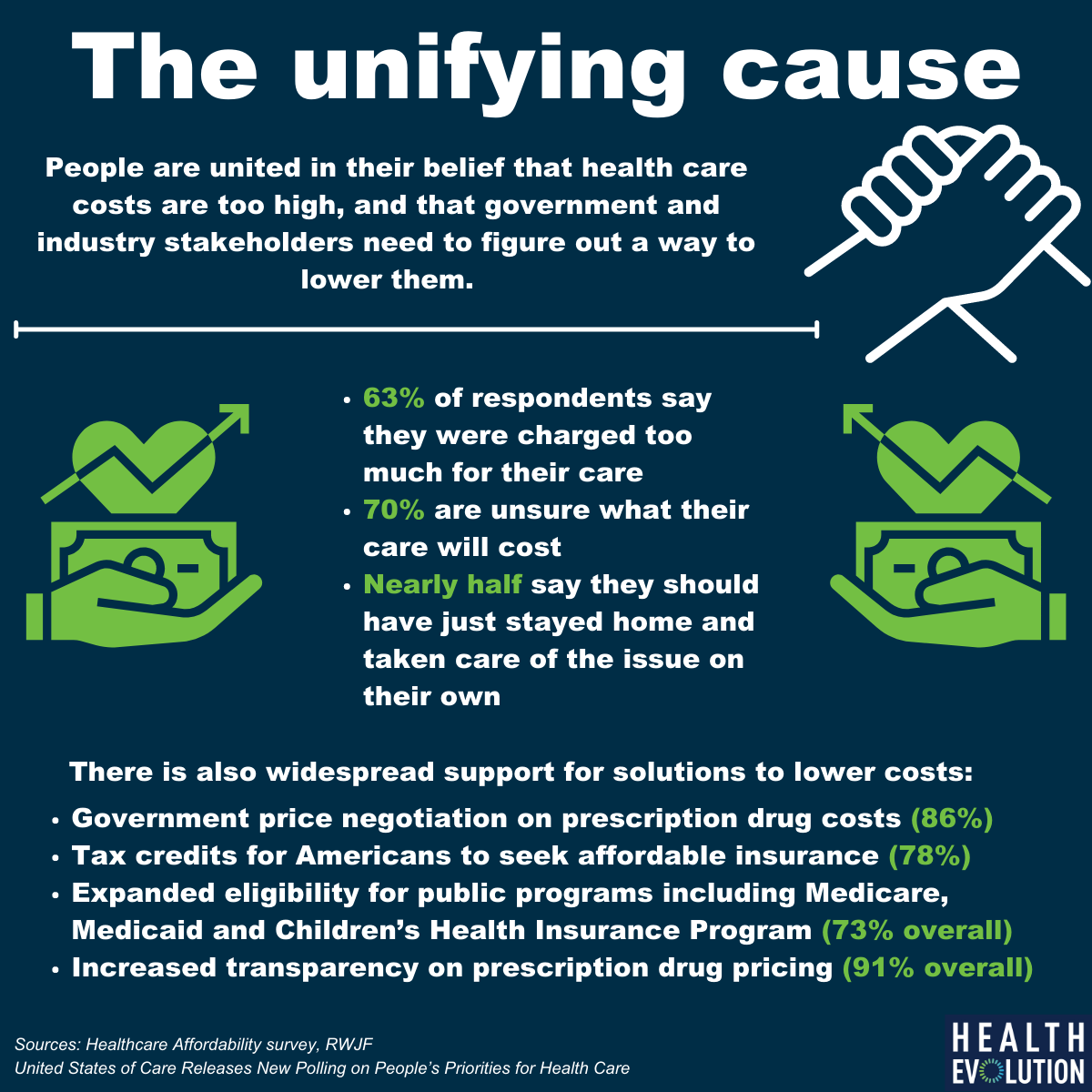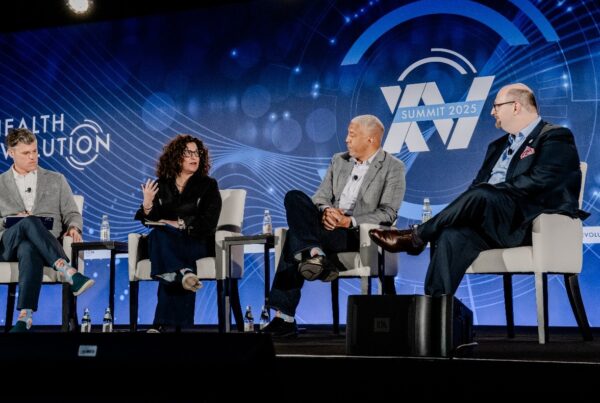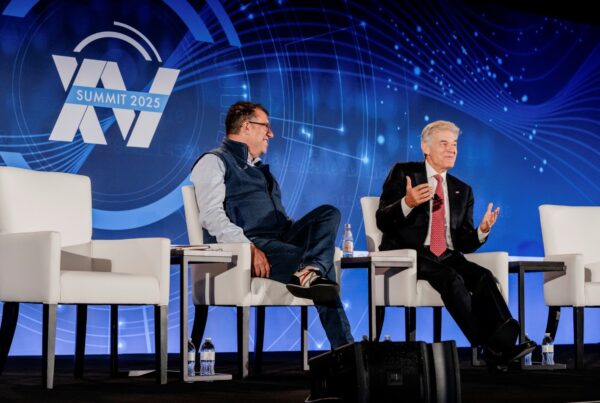It doesn’t matter who is in power in Washington D.C., nor does it matter what kind of economic climate the country is in. People are united in their belief that health care costs are too high, and that government and industry stakeholders need to figure out a way to lower them.
A new study from the Robert Wood Johnson Foundation (RWJF) is the latest proof of this bipartisan belief. In a survey of more than 2,000 patients, the non-profit found that 63 percent of respondents say they were charged too much for their care, 70 percent are unsure what their care will cost and nearly half say they should have just stayed home and taken care of the issue on their own. More than half of the respondents want big fundamental changes to the health care system.
There was even wider agreement on who is at fault for these high costs. Those surveyed point the finger at health insurance (71 percent) and drug companies (69 percent), while 80 percent of respondents, including most Republicans (61 percent), say it is the government’s responsibility to ensure health care is affordable. Nearly three-fourths of respondents say that health care costs are their biggest concern (second only to political divisiveness). Respondents of color expressed the most concern over health care costs.
“This study reinforces the fact that health care affordability is both an economic and racial justice issue that transcends political ideology. As costs rise, access to high-quality health services grows further out of reach for low-income people, who are disproportionately people of color, which results in gaps in insurance coverage and worse health outcomes,” Avenel Joseph, VP, Policy, RWJF, said in a statement.
All sides agree
US of Care, a non-profit bipartisan thinktank, released its own data in September that largely mirrors the findings of the RWJF study. In a public opinion survey, the organization found that 70 percent of respondents say cost remains their biggest health care concern. They also support a wide variety of solutions to address the issue including government price negotiation on prescription drug costs (86 percent), tax credits for Americans to seek affordable insurance (78 percent), expanded eligibility for public programs including Medicare, Medicaid and Children’s Health Insurance Program (73 percent overall), and increased transparency on prescription drug pricing (91 percent overall).
“When we talk to people across the country, we know that the cost to the person and their family is their number one concern. The fear of bankruptcy, losing coverage and not being able to afford care is really high on the minds of people and causes a lot of anxiety,” says Natalie Davis, CEO, US of Care. She says many people she talks with have a sense of foreboding when it comes to health care costs in that at any minute, something could go wrong. “In the wake of the pandemic, I believe there are openings for reform that weren’t possible before.”
Davis says the people who responded to the survey span the ideological, geographic, and demographic spectrum. As such, the need for these reforms should take a collective effort between government and industry stakeholders, as well as the patients themselves. US of Care features Founders, Health System, and Entrepreneurs Councils to promote the idea of public-private collaboration.
“When we think about health care reform, our current national narrative is that people don’t agree on what’s needed. When you don’t talk to people on politics, there’s actually a lot of agreement on what we want to get out of the health care system,” Davis says. “Cost, cost, cost is the biggest issue…People really feel they could go bankrupt at any minute.”
Like the US of Care survey, RWJF found bipartisan consensus on what kinds of policies could be put into place to lower costs. This included 89 percent in favor of limiting what drug companies can charge for specific drugs that save lives or that millions of people use to treat life-long health conditions like diabetes, 86 percent in favor of preventing drug companies from blocking cheaper generic drugs from being sold in the US, 85 percent in favor of putting limits on the prices that hospitals can charge for services, and 84 percent being in favor of allowing the government to negotiate lower drug prices for employers and consumers.
“There is a lot of work that can be done to make sure people don’t have this fear they’re going to go into debt. I mean that’s a pretty low bar,” Davis says.











